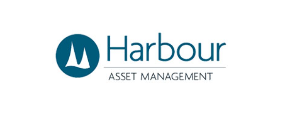
by Andrea Malcolm

As one of the parties that drafted the Aotearoa New Zealand stewardship code you would expect Harbour to focus on the topic in its 2022 sustainability report. While climate change grabs most ESG headlines these days, governance made up the bulk of active ownership outlined in the report.
On voting Harbour voted with 553 management recommendations and against 30. Executive remuneration and director elections continued to be controversial, but there was a growing number of shareholder resolutions, particularly across the Tasman, on climate change.
In an example of going against management recommendations, Harbour voted against an Australian healthcare company issuing options to a non-executive director, saying it wasn’t consistent with best practice. The company acknowledged Harbour’s feedback and the practice has been stopped for new appointees going forward. The resolution carried with 60% of shareholder support.
Governance still the main topic
The bulk of Harbour’s engagements, 52%, were on governance including meeting with companies proposing to increase director payment levels on whether they were justified.
A case study included engaging with the CFO of an Australian materials company. Harbour acknowledged that the company was small and highly technical and that the director brought necessary institutional knowledge and voted in support of the re-election with the commitment that the board would be refreshed in the medium term. The company also said it would announce at least one non-executive director in the near future and that three out of the four people shortlisted were women.
Environmental issues were behind 45% of Harbour’s engagements with a focus on climate change and how companies intend to decarbonise and meet emissions reduction targets.
In the case of the utility company, engagement on how it is executing its climate strategy and energy transition in New Zealand has been underway for several years, most recently with the chair following the annual result. It was noted that small pumped hydro projects may be more viable than Lake Onslow and it is still early days on hydrogen, with no infrastructure in place and a long build time. Other climate engagements included talks on electric vehicle adoption, innovation in industrial processes.
Voting against the shareholders
Harbour tended to vote against shareholder climate change resolutions given engagements showed that “many companies were already making solid progress”. Examples were major Australian banks joining the Net Zero banking alliance, setting near-term targets in lending portfolios and commitments to phasing out fossil fuel production.
Thirteen per cent of engagements were on social issues including an uptick in staff turnover rates. While it mostly came down to a tight labour market, Harbour says it will continue to monitor the issue to ensure companies are running strong staff retention programmes, including appropriate pay levels and wellbeing initiatives.
When talking to senior management and the board of a local retailer, modern slavery was a particular concern for Harbour given the high risk the industry has in general with its supply chain. Harbour fund managers sought information on how the company measured the effectiveness of its anti-modern slavery approach and examples of how it worked with suppliers. The company outlined how it was at the forefront of advising the government on developing modern slavery legislation and co-founded a collaborative initiative with peers to help collectively address the problem. It also provided examples of positive and negative supplier engagements around bonded labour and other human rights abuses.
All Harbour’s equity funds include climate change metrics in their reports and fact sheets. Direct clients receive further ESG measurements on topics such as gender diversity, modern slavery and board composition.
| « Two face Serious Fraud Office charges over alleged Ponzi scheme | Tough times ahead for NZ economy: Nikko economist » |
Special Offers
No comments yet
Sign In to add your comment

© Copyright 1997-2026 Tarawera Publishing Ltd. All Rights Reserved